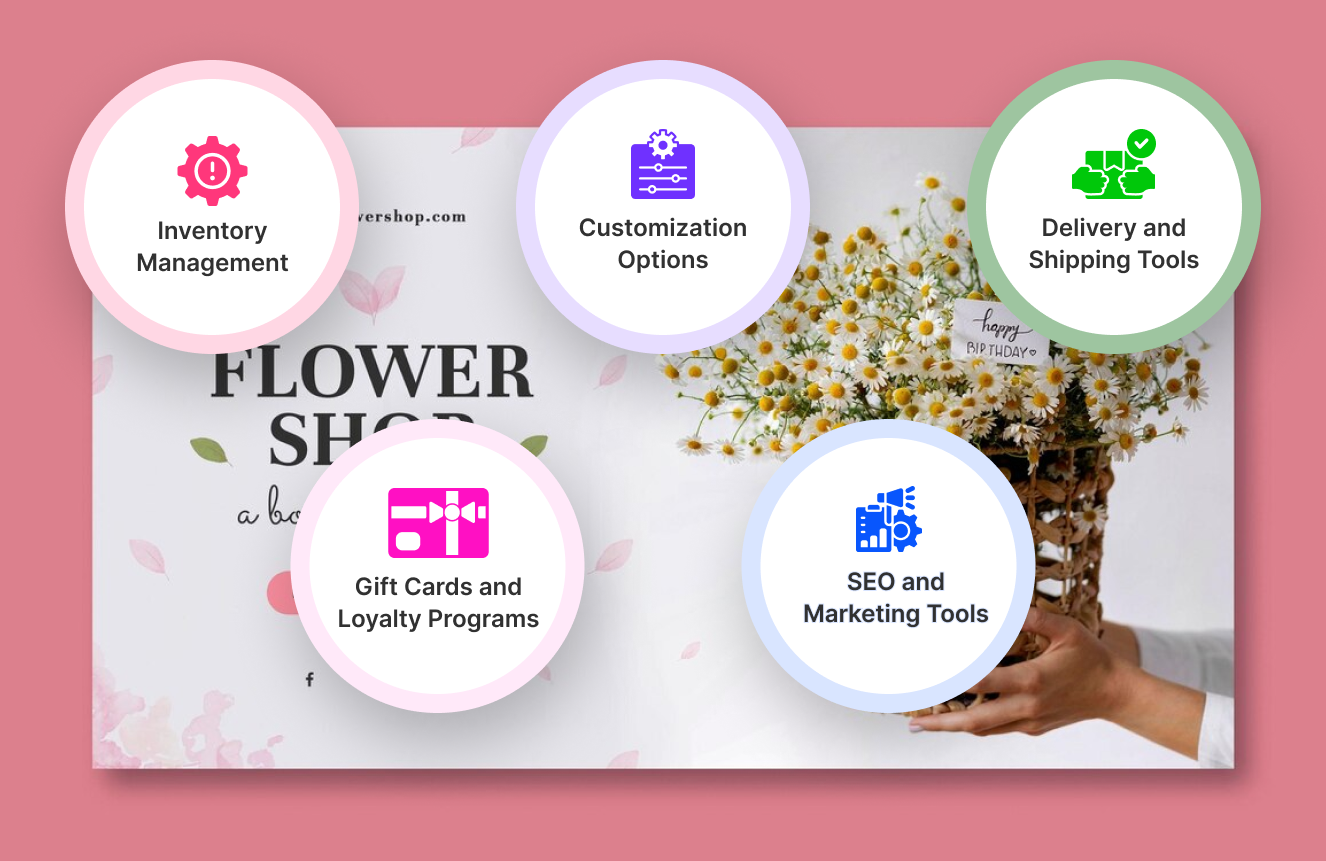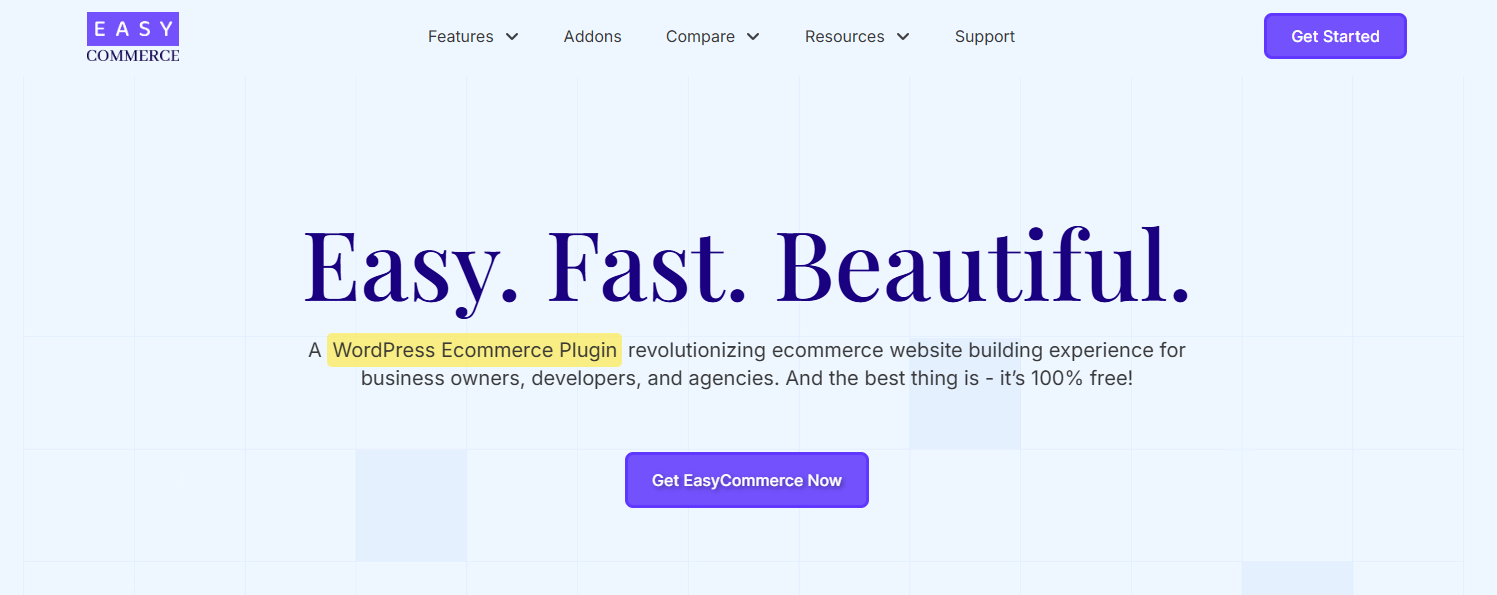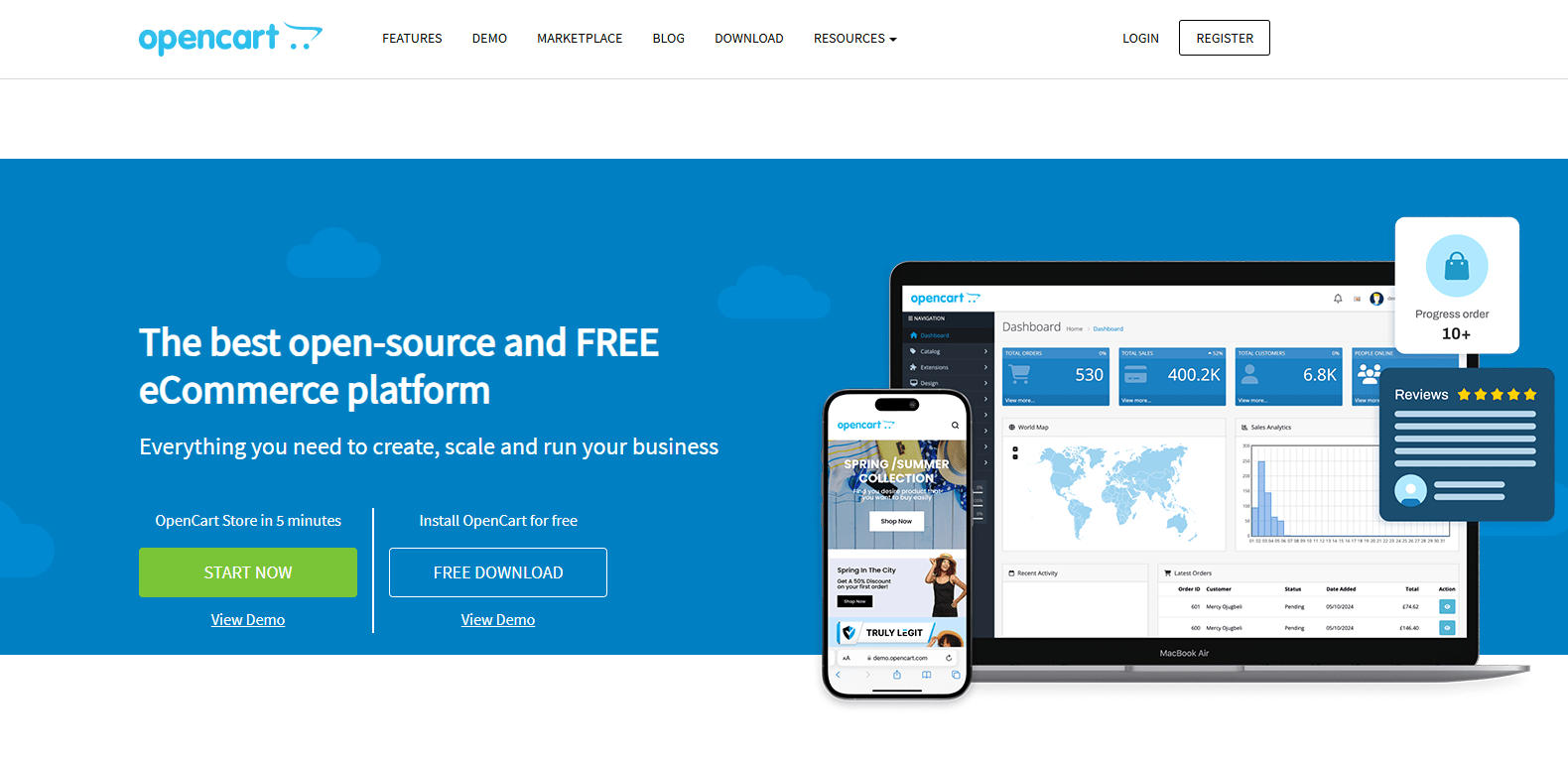Keeping flowers fresh and vibrant for days is a full-time job by itself. And when you consider the effort spent on handling orders, deliveries, and customer connections, it becomes less about the product and more about the complex logistics.
This is why you need a good ecommerce platform to handle these tasks for you. However, starting any ecommerce business (without prior technical experience) is no walk in the park. It takes weeks, if not months, to set up an online store that speaks your brand.
Luckily for you, we’ve compiled a list of the best ecommerce platforms for florists, including what features you need to look for and how to choose the option that’s right for you.
So, keep reading to see your flower business flourish online!
How to Choose the Best Ecommerce Platform for Your Floral Business?
Having a stunning online flower shop may bring in the sales, but it’s not enough to keep the business afloat. It’s all about finding a system that grows with your business while keeping things simple.
Start by finding out how comfortable you are with tech. If you’d rather spend time arranging flowers than fixing code, platforms like EasyCommerce or Squarespace have ready-made templates, easy drag-and-drop editors, and plenty of built-in tools that can help.
Now, if you need extensive customization and don’t mind a steeper learning curve, Magento or OpenCart may give you more flexibility.
Next, consider what makes your flower shop online unique. Do you need same-day delivery integrations, subscription options for weekly bouquets, or a way to manage perishable inventory? Open source platforms like Shopify or EasyCommerce have add-ons that can handle these specialty features.
Finally, don’t forget about costs, including monthly fees, transaction charges, and third-party app costs. A platform that fits your budget now should also support your growth later.
And if you ever get stuck, good customer support (or an active user community) can be a lifesaver.
Must-Have Ecommerce Platform Features for Florists
While most ecommerce platforms have similar features, not all of them can handle the smaller complexities of a flower business. So, it’s best to know which features your flower shop online needs to avoid any barriers along the way.

Here’s a quick checklist for your convenience –
- Inventory Management: Since flowers are perishable, you need a system that tracks stock levels in real time, alerts you when supplies are low, and prevents overselling.
- Customization Options: As physical flower shops often attract customers with their products, your online store needs to be just as vibrant and stunning. Find a system that comes with flexible customization options and professionally made templates.
- Delivery and Shipping Tools: Look for integrations with local couriers or same-day delivery services, along with features like delivery date pickers and real-time tracking.
- Gift Cards and Loyalty Programs: These are great for attracting repeat customers. Look for a platform that has these features built in (or with simple plugins).
- SEO and Marketing Tools: With online floral merchants growing at a rate of 11.8% annually, you need to make sure your store stands out. SEO features, social media integrations, and email automation are just some key features you need to help your customers find you online.
5 Best Ecommerce Platforms for Florists
If you’ve read the previous sections, you probably already figured out what your online flower shop needs from an ecommerce platform. Let’s look at the best ecommerce platform for florists to help you narrow your options.
1. EasyCommerce

If you’ve previously used WordPress, EasyCommerce could be a great fit for your online floral business. It’s a complete ecommerce solution that’s carefully developed to be as fast, easy, and minimal as possible.
Starting with an intuitive dashboard that shows a detailed report of sales numbers, trending products, and latest orders. You can easily manage perishable inventory (e.g., flowers) with features like low-stock alerts, extensive product management, and even customizable shipping options.
And since it’s built for WordPress, you’ll have free access to thousands of plugins (aside from its dedicated addons) to add functionality to your store.
Why We Recommend EasyCommerce
- High Performance: With API-first data processing, performance is exceptionally fast. Even during busy floral seasons, your site will stay fast and responsive.
- Dedicated Addons: It has a growing library of dedicated add-ons, which are particularly helpful for SEO and marketing efforts.
- Multiple Payment Gateways: You can offer multiple secure payment gateway options (PayPal, Stripe, Square, etc.) during checkout.
- Easily Scalable: It’s easy to set up and scalable, so you can start and grow your business without ever switching out platforms.
- Actionable Dashboard: Get all your sales numbers and reports in real-time, from one convenient page.
- Built-in Features: Essential features like coupon editor, automated shipping, taxation, and more come out of the box.
Disadvantages for Florists
- Only for WordPress: If you don’t have any previous experience with WordPress, you might struggle with this plugin.
- New Platform: EasyCommerce is a relatively new platform, so some advanced functions are still in the pipeline.
Pricing
The EasyCommerce plugin is free. However, domain and hosting may incur costs.
2. Shopify

Shopify is a reliable option for florists who want an all-in-one solution that makes building an ecommerce store easy, even for those without coding experience. It’s known for its intuitive interface and built-in ecommerce features to manage your entire business from one dashboard.
The platform also has beautiful, customizable, mobile-friendly themes (some tailored to florists) that help showcase your floral arrangements in their best light. You will also get built-in features for inventory, payments, and shipping to manage your entire business from the same dashboard.
Why We Recommend Shopify for Florists
- Easy Setup: Even with beginner-level experience, you can launch your store quickly with templates for floral businesses as well.
- Built-in Sales Features: You don’t have to pay extra for addons or plugins to offer gift cards, subscriptions, or local pickup/delivery with built-in features.
- Secure Checkout: Shopify handles security for you with Shopify Payments (including credit cards and digital wallets), which is PCI compliant.
- 24/7 Support: Get dedicated help anytime via chat, email, or phone, courtesy of Shopify.
- App Store: Add advanced functionalities with apps for floral needs like perishable inventory or custom arrangements.
Disadvantages for Florists
- Less Customization: Its template-based structure can feel restrictive if you want to customize designs without coding.
- Transaction Fees: You will have to pay extra for transaction fees if you’re not using Shopify Payments.
- Perishable Inventory Issues: The basic Shopify plan doesn’t have built-in tools to manage perishable floral stock, so you will probably have to use paid apps.
Pricing
Plans start at $29/month (billed annually), with transaction fees unless you’re using Shopify Payments.
3. Squarespace

If your first priority for your online flower website is aesthetics, Squarespace has the perfect ready-made templates for you. Squarespace is specifically made for creatives and artists who want a website to perfectly match the vibe of their portfolios.
While it’s not as sales-focused as platforms like EasyCommerce or Shopify, its intuitive design tools and elegant layouts can help your website reflect the beauty of your brand and make your floral arrangements look irresistible.
Why We Recommend Squarespace for Florists
- Stunning Templates: Choose from designer-made themes and templates that perfectly showcase bouquets and seasonal floral collections.
- Easy Product Management: You can easily add, organize, and update your arrangements with options for variants like size or add-ons.
- Built-in Blogging: As it is developed for creatives, it has built-in features for blogging, so you can connect with customers and boost SEO with relevant content.
- Mobile-optimized: Every template and theme is professionally made to look great on phones and tablets, which is essential since most customers browse on smaller screens.
- No Coding: Everything is user-friendly with a drag-and-drop editor, so you can customize colors, fonts, and layouts seamlessly and quickly.
Disadvantages for Florists
- Ecommerce Limitations: Because it prioritizes aesthetics over sales, you might run into roadblocks when handling complex orders like custom floral add-ons.
- Scalability Issues: If you’re tasked with running a large business, you will probably outgrow Squarespace’s product variant limits (250 per item) or even reporting capabilities.
Pricing
The Business plan starts at $23/month (billed annually), which includes basic selling features and a 3% transaction fee.
4. Magento

If your floral business has outgrown basic platforms and you need serious customization without the enterprise-level attached, Magento open source can give you impressive flexibility. You probably heard about Adobe Commerce taking over Magento Enterprise, while this is technically true, Magento open source still exists and is getting new updates as we speak.
While Magento doesn’t have Adobe Commerce’s premium support and cloud hosting, you will get complete ownership of your online flower shop’s technology if you’re willing to put in the technical legwork.
Why We Recommend Magento for Florists
- Great for Growth: Magento can handle thousands of products and seasonal traffic spikes without slowing down your site.
- Multi-store Flexibility: You can run multiple seperate sites for weddings, corporate clients, and retail, all from one dashboard.
- Built-in SEO Tools: Quickly outrank competitors with advanced URL structures, meta tags, and built-in sitemaps.
- Huge Extension Library: Add features like POS systems, floral design tools, or even B2B portals to your store via Magento’s marketplace.
Disadvantages for Florists
- Hidden Costs: While the software is free, expect to budget for hosting, security, extensions, and developer fees.
- Steep Learning Curve: The admin interface isn’t as user-friendly as EasyCommerce or Shopify, so you may need longer to set it up.
Pricing
Magento Open Source is free, but you’ll need developer help + hosting.
Adobe Commerce starts at ~$22,000/year (best for enterprises).
Magento vs. Adobe Commerce?
- Small to Mid-sized Florists: Stick with Magento Open Source if you have technical resources.
- Large Florists: Adobe Commerce adds cloud hosting, security, and premium support, which is worth the investment for scaling.
5. OpenCart

If you want a flexible and budget-friendly ecommerce solution and have some technical knowledge, OpenCart could be useful. OpenCart is an open source platform that gives you full control over your online flower shop without the excessive costs of enterprise systems like Adobe Commerce.
The setup requires a more hands-on approach, so if you have the extra time on your hands, you can use its modular design to build exactly the store you’re envisioning.
Why We Recommend OpenCart for Florists
- Low-cost Operation: As it’s open source, it’s completely free to download with no monthly fees. But you’ll need to pay for hosting and any paid addons.
- Florist-friendly Extensions: It lets you add specialized features like delivery date selectors, floral arrangement builders, and subscription options.
- Lightweight Performance: Your store will run smoothly even with huge flower catalogs.
Disadvantages for Florists
- Tech Experience Needed: Like most open source systems, OpenCart takes a bit of coding skills to set up. So, you don’t have any tech knowledge, we recommend against it.
- Clunky for Large Inventories: If you’re handling hundreds of SKUs, your site might slow down. The backend interface feels outdated.
Pricing
While the core system is free, you will need to pay $5-50/month for hosting and $20-150 for extensions.
Wrapping Up
When it comes to choosing the best ecommerce platform for florists, your choice ultimately comes down to your specific needs, budget, and comfort with technology. If you’re a small florist or just starting out, EasyCommerce is a simple and budget-friendly option with WordPress integration.
Shopify is a great all-around choice for most florists because it’s easy to use, packed with features, and scalable when necessary. If visuals and a smooth brand experience are your priority, Squarespace has beautiful designs and basic/essential selling tools.
On the other hand, if you’re running a large-scale floral business with a significant budget and need advanced customization, go for Adobe Commerce. Meanwhile, OpenCart can work if you prefer open source flexibility and the tech skills to manage it.
Take your time, weigh your options, and pick the one that helps your floral business bloom!
Frequently Asked Questions (FAQs)
What’s the easiest ecommerce platform for a florist just starting out?
Shopify and EasyCommerce are the most beginner-friendly options. Shopify offers an all-in-one solution with minimal setup, while EasyCommerce is ideal if you already use WordPress and want a free, simple way to sell online.
Which platform is best for florists who need advanced customization?
Magento and OpenCart provide the most flexibility for custom features, but they require technical expertise.
Can I manage perishable floral inventory on these platforms?
Yes, but some handle it better than others. Shopify and EasyCommerce support low-stock alerts and integrations with inventory apps.
Adobe Commerce has better inventory controls but needs setup. Squarespace has basic tools, while OpenCart requires plugins.
Are there platforms specifically built for florists?
Yes! Florist-focused platforms like FloristWare or Floranext include features like delivery scheduling and arrangement builders. However, general platforms like Shopify or EasyCommerce are more flexible with multiple integrations.

